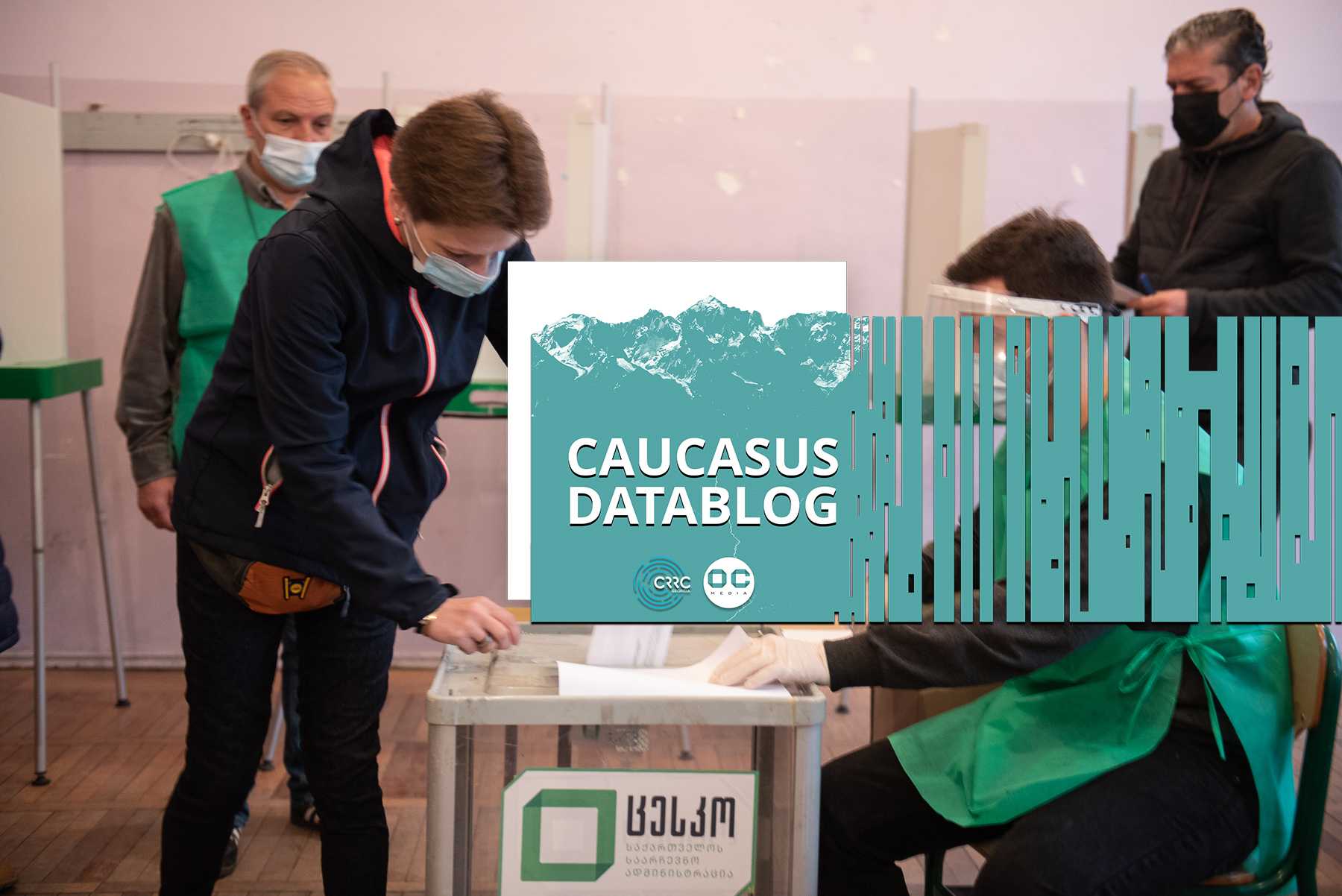
A local member of the election administration in the western Georgian city of Kutaisi, responsible for checking the validity of voters, has remained silent after accusing the ruling Georgian Dream party of election fraud. She had warned that pressure on her would mount after she went public with the allegations.
On 3 November, local media reported that Chirgadze has been staying outside of Kutaisi and has refused to communicate with journalists.
Several opposition parties as well as the International Society for Fair Elections And Democracy (ISFED), an elections watchdog, said that they have been unable to reach Iza Chirgadze since 1 November, when she made comments accusing the ruling party of election fraud.
On 30 November, Georgia held the run-off vote of its municipal elections. The ruling Georgian Dream party swept to victory, winning 19 of 20 contests, including in Kutaisi where the ruling party Georgian Dream’s Ioseb Khakhaleishvli defeated opposition candidate Khatia Dekanoidze with 52% of the vote.
The results triggered discontent among opposition parties who have announced a big rally in Tbilisi this Saturday, to protest the validity of the election results.
[Read more on OC Media: EU and US slam Georgian authorities over election conduct]
Iza Chirgadze, a registrar at #90 Precinct Election Commission in #59 Electoral District in Kutaisi, came forward publicly on 1 November accusing a person she identified only as ‘Inga’, allegedly ‘a Georgian Dream representative’, of calling her during voting day and attempting to convince her to allow ineligible voters to cast ballots.
A registrar is responsible for spraying a special liquid on voters’ fingers to prevent the repeated casting of ballots. They also check each voters’ IDs against the electoral list, and give them a voting ballot.
Nini Tvalavadze, a member of the opposition United National Movement (UNM) party claimed that she witnessed two Georgian Dream members try to corner Chirgadze as she was about to meet her in Kutaisi, immediately before Chirgadze’s press conference.
During the press conference, the election registrar expressed fears that she and her family would meet with severe backlash because of her claims. After it was over, Chirgadze left the premises and reportedly could not be reached. She also was a no-show at other planned media engagements later that day.
Speaking with Georgian news outlet Netgazeti, Georgian Dream MP Shalva Papuashvili denied that they had in anyways pressured the Chirgadze.
‘The State Security Service went to her home’
On 2 November night, Imeda Kldiashvili, Kutaisi Vice-Mayoral candidate from the opposition Girchi – More Freedom party was dragged out of his car after he blocked the entrance to the offices of Georgia’s State Security Service (SSG) in Kutaisi.
Kldiashvili said that it was an ‘act of disobedience’ in protest over the silencing of Iza Chirgadze.
According to UNM and Girchi, the SSG was directly involved in attempting to intimidate Chirgadze to stop speaking publicly about the alleged election fraud. ‘The SSG went to her home and threatened her’, Kutaisi Mayoral candidate Khatia Dekanoidze claimed on 1 November.
During his protest in front of the SSG offices, Kldiashvili expanded on his claims.
‘They [the SSG] intimidated her husband. Her husband asked his wife not to contact anyone unless she wanted him to also have problems’, Kldiashvili said in an address, broadcast over Facebook Live.

Kldiashvili was later fined ₾2,000 ($633) and had his driving privileges suspended for six months.
Kldiashvili was also the one who requested that ISFED provide legal assistance to Iza Chirgadze.
On 2 November, ISFED confirmed that they had agreed to meet Chirgadze personally that day but they have not been able to reach her since.
‘[T]he law enforcement agencies are fully responsible for ensuring a safe and pressure-free environment for Chirgadze and her family’, ISFED said on 3 November.
Georgian law enforcement authorities have not commented on the alleged intimidation and electoral fraud accusations.









